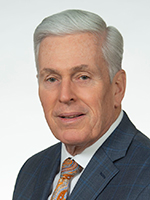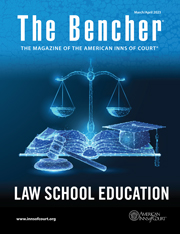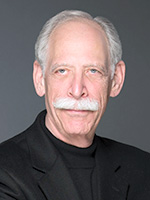Technology and Legal Education
The Bencher—March/April 2023
By Chief Judge Michael K. Newell

 This issue of The Bencher is about legal education. Richard Herrmann, Esquire (RKH), is a former author of this column, and Ryan Newell, Esquire (RPN), is a current co-author with me. Both have taught legal skills courses and are active in technology issues as they relate to law practice. Newell is the president of the Richard K. Herrmann Technology Inn of Court and Herrmann was the founding member of the Inn. Given their interests in technology and experience in teaching law classes, I thought I would interview them to get their insight on technology and legal education.
This issue of The Bencher is about legal education. Richard Herrmann, Esquire (RKH), is a former author of this column, and Ryan Newell, Esquire (RPN), is a current co-author with me. Both have taught legal skills courses and are active in technology issues as they relate to law practice. Newell is the president of the Richard K. Herrmann Technology Inn of Court and Herrmann was the founding member of the Inn. Given their interests in technology and experience in teaching law classes, I thought I would interview them to get their insight on technology and legal education.
Describe your current position and area of practice.
RKH: I am currently visiting professor and director of law and technology at Delaware Law School. I also serve as associate director of research at William and Mary’s Center for Legal and Court Technology.
RPN: I am a partner at Young Conaway Stargatt & Taylor, LLP where I litigate corporate and commercial disputes. I am also an adjunct professor at Delaware Law School.
How do you use technology in your law classes?
 RKH: We focus on the skills of using technology in trial practice. We educate students on the issues arising in pretrial as well as how to use technology during hearings and the trial itself.
RKH: We focus on the skills of using technology in trial practice. We educate students on the issues arising in pretrial as well as how to use technology during hearings and the trial itself.
How have law students adapted to the use of technology and legal education?
RKH: We have found the students very eager to perform. They use the technology available to them and seem more comfortable with it than the current members of the bar.
 RPN: I agree. It is far more common to see students in a mock argument eschew paper and rely on technology for their presentation than it is in practice.
RPN: I agree. It is far more common to see students in a mock argument eschew paper and rely on technology for their presentation than it is in practice.
Are law students better prepared to enter their legal careers today?
RKH: I do not believe so. In the past, graduates were expected to have good grades from a recognized law school. Today, I believe they are expected to have more useful experience. They are not yet getting this in their law school education, although the ABA is trying to emphasize this importance.
RPN: I had the same level of preparation as a first-year attorney in 2005 as current graduates, but I learned to be a lawyer on the job. However, the economics of the practice have changed. While this is not the only factor, as hourly rates have risen (in response to heightened revenue demands and increased salaries), clients expect that new lawyers are not just good law students, but good lawyers. They may also refuse to pay an hourly rate for a new lawyer when that hourly rate was what some partners were charging not too long ago. In the past, it was easier to provide opportunities for attorneys to cut their teeth because of lower billing rates. As rates have increased, justifying those opportunities has become more challenging. Accordingly, the students who are given experiential opportunities will be the most prepared. The case law method and bar preparation have an important role in legal education, but experiences are more important in developing attorneys.
Do you have any final thoughts?
RKH: Obviously, the substance of the law is as important today as it was 100 years ago. However, the ABA is correct in recognizing the importance of skills programs. In today’s world, all of the skills programs need to include the use of technology in the practice. There is a need to have more professionals with experience in using these technologies. While the substance remains as important as it always has been, the importance of technology, substantively and in the practice, has increased, and law schools need to recognize this.
RPN: Historically, law schools have provided an excellent education and have given students opportunities in a variety of professional fields. I do not think that will or should change. But for those desiring to be practitioners, the education should involve developing the skills that will actually be used on the job. Traditionally, this has been a weak spot in legal education. As technology is an essential part of practice, students will be best prepared through experiences that employ relevant technology and simulate life after law school. If that is achieved, employers will benefit from better new attorneys, clients will benefit from better counsel, and our students will benefit from better development and professional opportunities.
Michael K. Newell is the chief judge of the Family Court of the State of Delaware. He is a member and past president of the Melson-Arsht American Inn of Court and a member of the Richard K. Herrmann Technology American Inn of Court in Wilmington, Delaware.